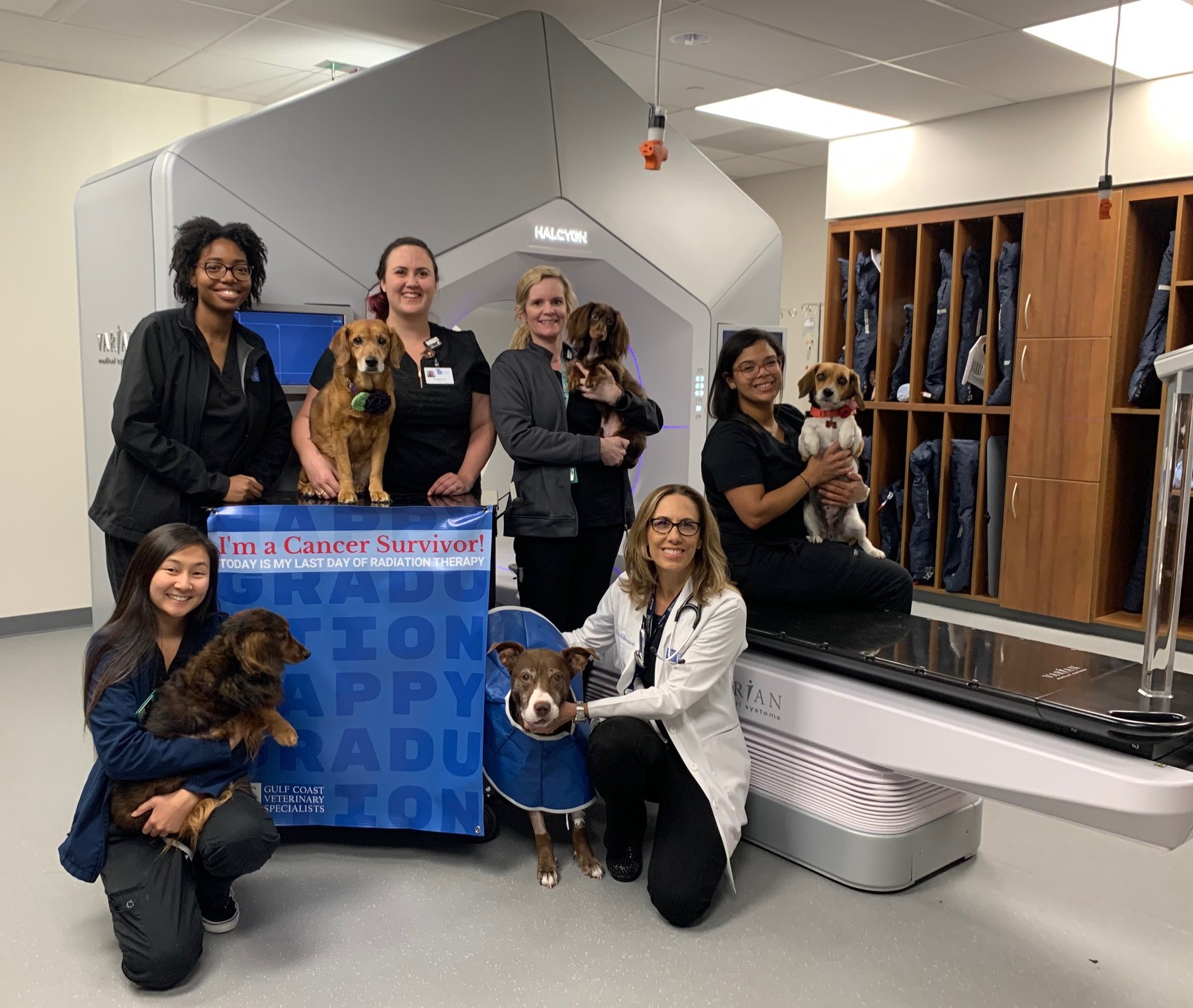Comprehensive Cancer Care for Pets at Gulf Coast Veterinary Services

Surgery for pets with cancer
If your pet has a cancerous tumor, surgical excision may be an option. While some tumors can be completely cured with surgery, others may invade local tissue or bone, and complete excision may not be possible. A tumor’s size, location, and type will determine whether complete excision, or only partial removal, is possible. If partial resection is the best option, the remaining cancer can often be treated with radiation or chemotherapy. GCVS’s oncology and surgery teams collaborate to provide the best treatment plan for every pet.Chemotherapy for pets with cancer
 Chemotherapy involves treating cancer with medications that target rapidly dividing cells, and is part of many cancer treatment plans. Chemotherapy often is combined with surgery, immunotherapy, or radiation, but can also be used alone when surgery is not possible, or when cancer has metastasized throughout the body. Pet chemotherapy differs from human chemotherapy in that pets typically do not suffer debilitating side effects, such as fatigue, nausea, vomiting, diarrhea, or hair loss. For those who do experience side effects, medications can keep them feeling good throughout the treatment period. Some chemotherapy treatments must be administered in-hospital by injection, but you can give your pet many of the oral medications at home.
Chemotherapy involves treating cancer with medications that target rapidly dividing cells, and is part of many cancer treatment plans. Chemotherapy often is combined with surgery, immunotherapy, or radiation, but can also be used alone when surgery is not possible, or when cancer has metastasized throughout the body. Pet chemotherapy differs from human chemotherapy in that pets typically do not suffer debilitating side effects, such as fatigue, nausea, vomiting, diarrhea, or hair loss. For those who do experience side effects, medications can keep them feeling good throughout the treatment period. Some chemotherapy treatments must be administered in-hospital by injection, but you can give your pet many of the oral medications at home.